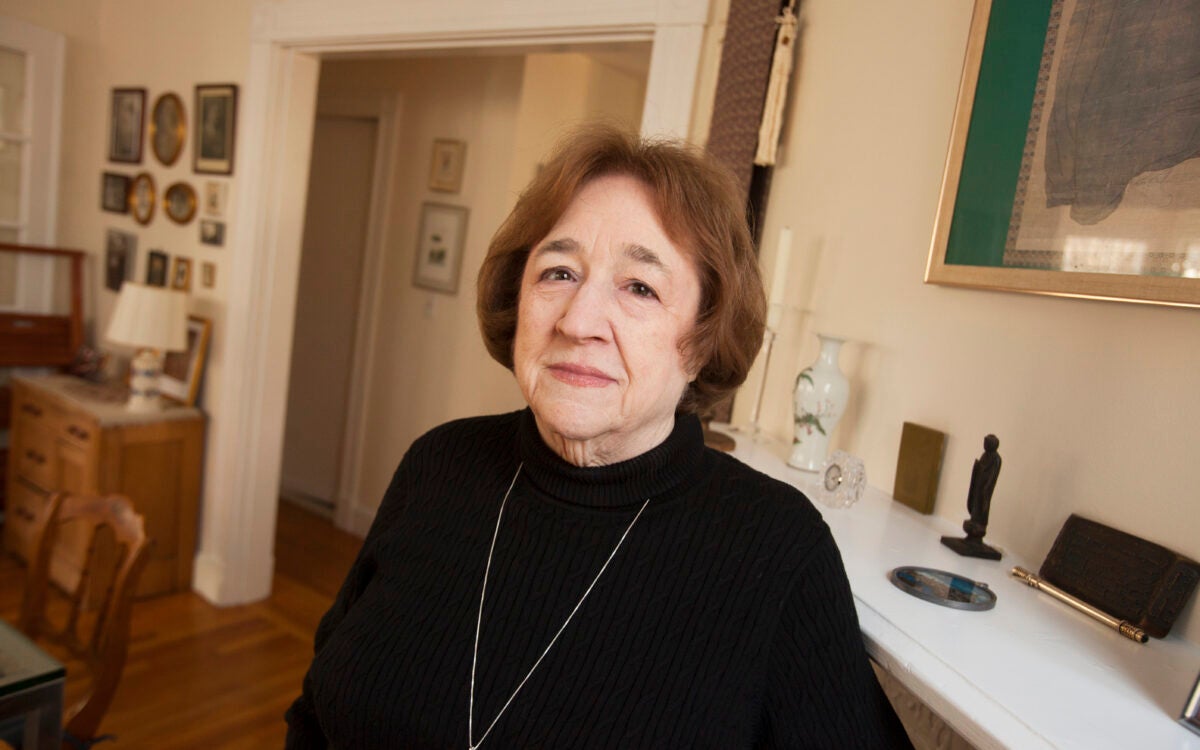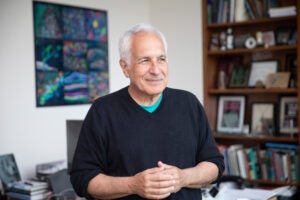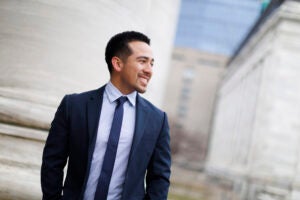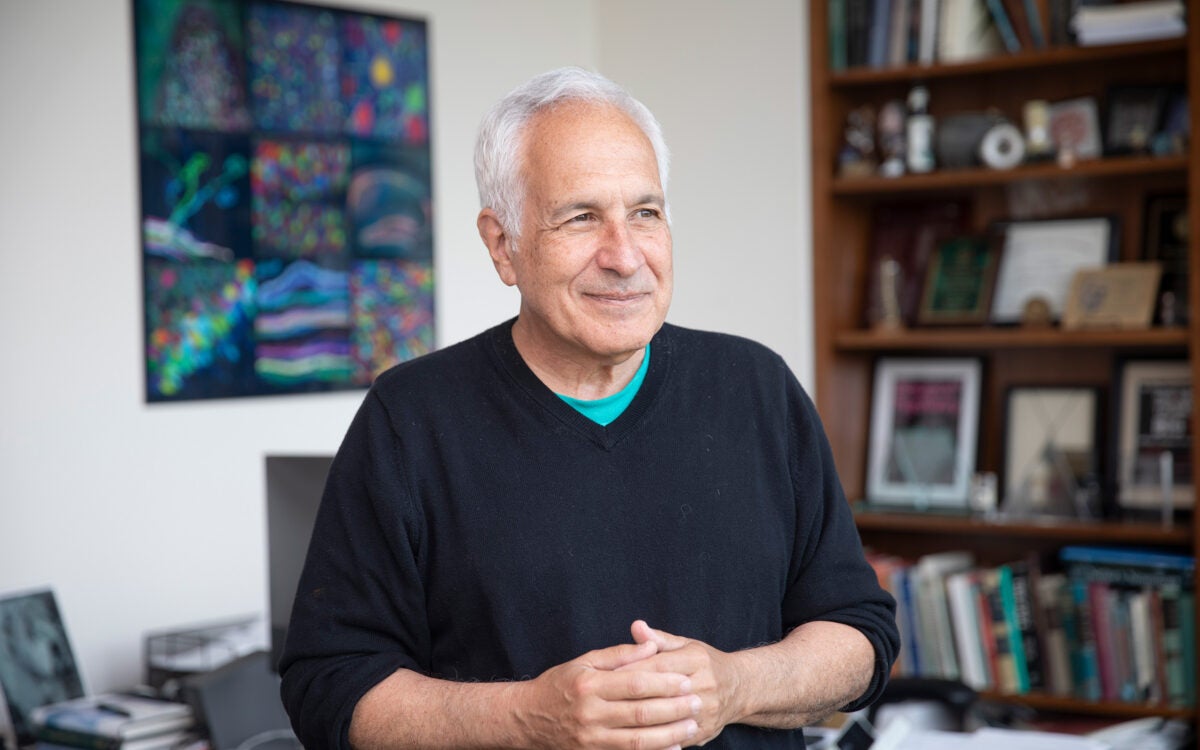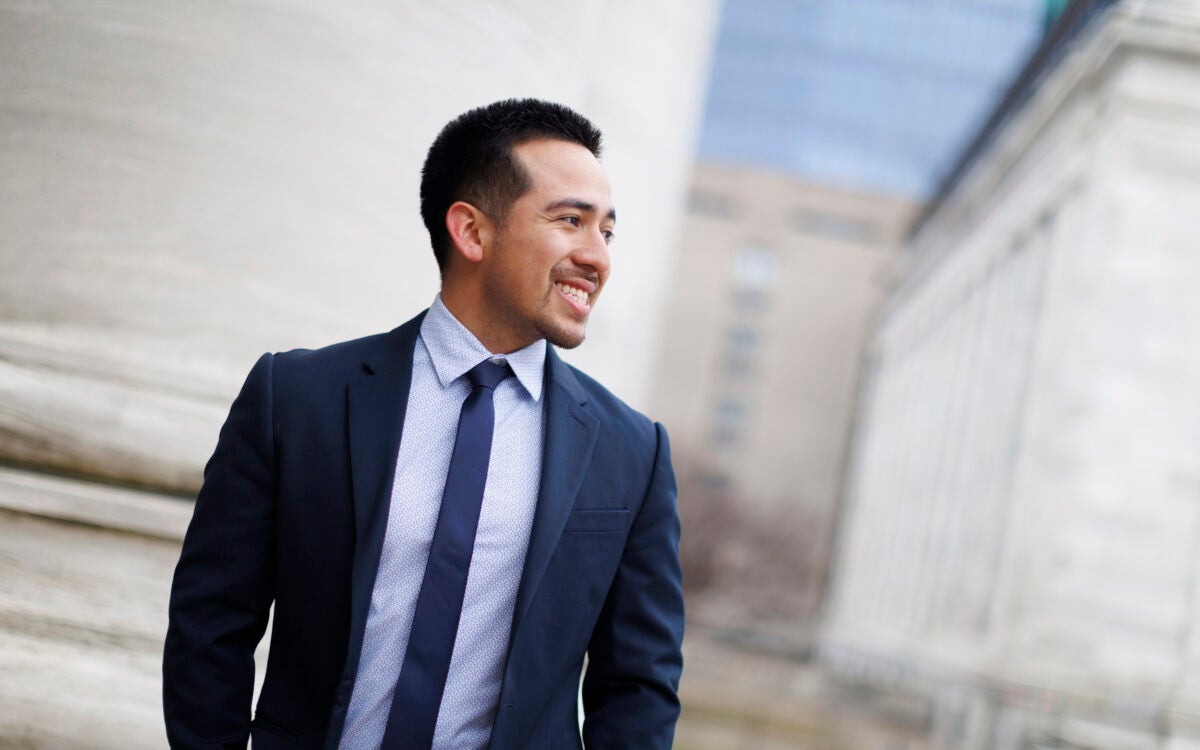
“My research work has been blessed with a wealth of advisers, collaborators, and resources. It has guided my academic life, and has even strengthened my already close-knit family ties,” said Scott Kominers, who completed his Ph.D. in business economics in the spring of 2011.
Justin Ide/Harvard Staff Photographer
Sharing the fun of research
Scholar, friends develop guide to help others succeed in science
Today, academic research is my job. I defended my Harvard Ph.D. dissertation in the spring, and now hold a research scholarship at the University of Chicago. For years before I began doctoral studies, however, academic research was my primary extracurricular activity — something I just did for fun.
I first discovered my appetite for research through high school summer programs, like the Research Science Institute at the Massachusetts Institute of Technology (MIT), and a series of high school science fairs. Following my high school explorations, I conducted research while an undergraduate at Harvard, both during the academic term and through summer research fellowship programs, including the Harvard College Program for Research in Science and Engineering.
My research work has been blessed with a wealth of advisers, collaborators, and resources. It has guided my academic life, and has even strengthened my already close-knit family ties. My brother, Paul M. Kominers MIT ’12, and I have developed similar research interests and have collaborated on several projects.
Given all the value — not just professional, but personal — of my research experiences, I have sought to give back to the science community by helping the next generation of students gain access to research. To that end, I have regularly volunteered as a mentor to younger students, particularly those at summer research programs, and have in addition come home to judge at ScienceMONTGOMERY, my county’s middle and high school science fair in Maryland, which is affiliated with the Intel International Science and Engineering Fair.
This year, I was able to take my contribution to a new level. Jointly with four of my Harvard peers — Shiv Gaglani ’10, Maria Elena De Obaldia ’08, Dayan Li ’11, and Carol Y. Suh ’11 — I have recently completed co-authorship of a handbook to high school science research, “Success with Science: The Winners’ Guide to High School Research” (Research Corporation for Science Advancement, 2011, www.successwithscience.org).
Like me, my four co-authors began their careers in science research as early as high school, and all achieved success in science fairs at that level. Also like me, they have felt driven to make research accessible to others through teaching, volunteer work, and involvement in campus research organizations like the Harvard College Undergraduate Research Association (which Gaglani founded).
Through our research and volunteer work, my co-authors and I have come to understand a corpus of knowledge about student research that is general and teachable. By collaborating on “Success with Science,” we have been able to share this knowledge with a broad audience. Moreover, in this project we have made our experiences (augmented by those of more than 50 of our science fair contemporaries) tangible, communicating our passion for research to other students. And we have been lucky enough to also bring a faculty perspective: Harvard Professors Dudley R. Herschbach A.M. ’56, Ph.D. ’58, and Lisa Randall ’83, Ph.D. ’87, respectively, wrote the book’s foreword and afterword, reminding readers that early experience can lead to a lifetime of research.
At ScienceMONTGOMERY this year, in addition to judging, I distributed copies of the new handbook (just as some of my co-authors did at their own hometown science fairs). Talking to students and parents about the book, I was able to see its effects firsthand. Some of the students took the book home the night they set up their projects, and stayed up reading it. Even more significantly, several students told me that they admired my classmates’ and my model of sharing our knowledge with the next students in the pipeline — and that they themselves aspired to give back to the student research community as soon as they could.
If you’re an undergraduate or graduate student and have an essay to share about life at Harvard, please email your ideas to Jim Concannon, the Gazette’s news editor, at Jim_Concannon@harvard.edu.
